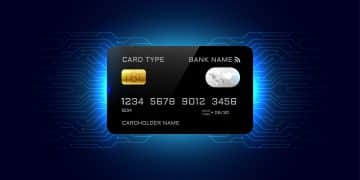Prepaid Card: Understand What It Is and How It Works in Daily Life

Anúncios
Have you heard about prepaid cards? They are becoming increasingly popular as a practical and secure alternative to managing your daily finances.
But do you know exactly what a prepaid card is and how it can be useful in your daily life?
Continue reading to discover everything about this financial tool, from its main features to the advantages it can offer in your day-to-day life.
What is a Prepaid Card?
A prepaid card is a type of debit card that resembles a rechargeable gift card.
It can be used to make purchases anywhere, just like regular cards, so don’t worry.
These cards can be found in retail stores or banks, and they already have a predetermined value. From the moment of purchase, you can spend the balance until it is exhausted.
Understand how a Prepaid Card works
A prepaid card works in a basic way: you deposit a value on the card, and you can only spend the available amount.
It is important to remember that, unlike regular cards, prepaid cards will not help with your credit score.
Prepaid cards have account and routing numbers, which can help you send your salary or government benefit directly to the card.
With this card, you can make physical and online purchases, pay bills, and even withdraw money.
How to reload a Prepaid Card?
To reload your card, you can deposit money directly onto the card through a checking account or another prepaid card.
You can deposit money through a paycheck, reload the card at a store using cash, or buy a reload package.
With these four payment methods, you will be able to reload the prepaid card and have money available.
Understand the positive points of using a Prepaid Card
Prepaid cards offer several advantages that can be appealing to various consumer profiles. Below are some of the positive points detailed:
No chances of overspending
One of the main benefits of using a prepaid card is that it prevents overspending. With a prepaid card, you can only spend the amount that was previously loaded onto the card.
This means you cannot accumulate debt or spend more than you have available, helping you maintain financial control.
For those who have difficulty keeping a budget or frequently spend more than they can afford, a prepaid card can be an excellent financial management tool.
Accessible option
Prepaid cards are widely accessible. They do not require a credit check, making them a viable option for people with poor credit history or no credit history.
Additionally, many prepaid cards can be obtained without the need to open a bank account, making them ideal for individuals who do not have access to traditional banking services.
This accessibility facilitates financial inclusion, allowing more people to participate in the digital economy.
Limit to losses
Another significant advantage of prepaid cards is the limit to financial losses.
Since these cards only contain the amount you loaded onto them, losing or having the card stolen will not result in losing more money than the available balance on the card.
This provides an additional layer of security compared to traditional credit and debit cards, where credit limits can be high and checking accounts can be accessed directly.
In cases of loss or theft, financial exposure is limited.
No late payments
With a prepaid card, there is no risk of late payments since there are no monthly payments to be made.
Unlike credit cards, where you need to remember to pay the bill every month to avoid interest and penalties, prepaid cards work simply: you spend what you have on the card, and once the balance is exhausted, there are no more purchases until the card is reloaded.
This eliminates the need to monitor due dates and makes card management simpler and more straightforward.
What are the disadvantages of this type of card?
While prepaid cards offer various advantages such as spending control and security, they also present some disadvantages that should be considered before opting for this type of card. Here are some of the main disadvantages:
- Fees and Charges: Many prepaid cards charge a variety of fees, including issuance fees, reload fees, monthly maintenance fees, ATM withdrawal fees, and even inactivity fees. These fees can quickly add up, making the use of the card more expensive than anticipated.
- Absence of Credit Benefits: Unlike credit cards, prepaid cards do not help build or improve your credit history since no loan is involved.
- Limitations on Rentals and Reservations: Some services, such as car rentals or hotel reservations, may not accept prepaid cards or may require a larger deposit as a guarantee.
- Limited Reload Options: While prepaid cards offer flexibility in reloading, some have maximum monthly or annual reload limits.
- No Rewards Programs: Unlike many credit cards, prepaid cards generally do not offer rewards programs, cashback, or other benefits that can be attractive to consumers looking to maximize their spending.
- Limited Protection: While prepaid cards offer some protection against fraud, they do not have the same robust protections as credit cards, such as the right to dispute fraudulent or erroneous charges.
- Limited International Acceptance: Although prepaid cards are widely accepted, there may be limitations on their acceptance outside the issuing country, especially in areas that do not have well-developed payment infrastructure.
Considering these disadvantages can help you decide if a prepaid card is the best option for your financial needs.
Carefully evaluating the costs and benefits is essential to ensure you are making the most suitable choice for your lifestyle and financial goals.
Do you understand what a Prepaid Card is? We hope so! Continue following our site to learn more!





